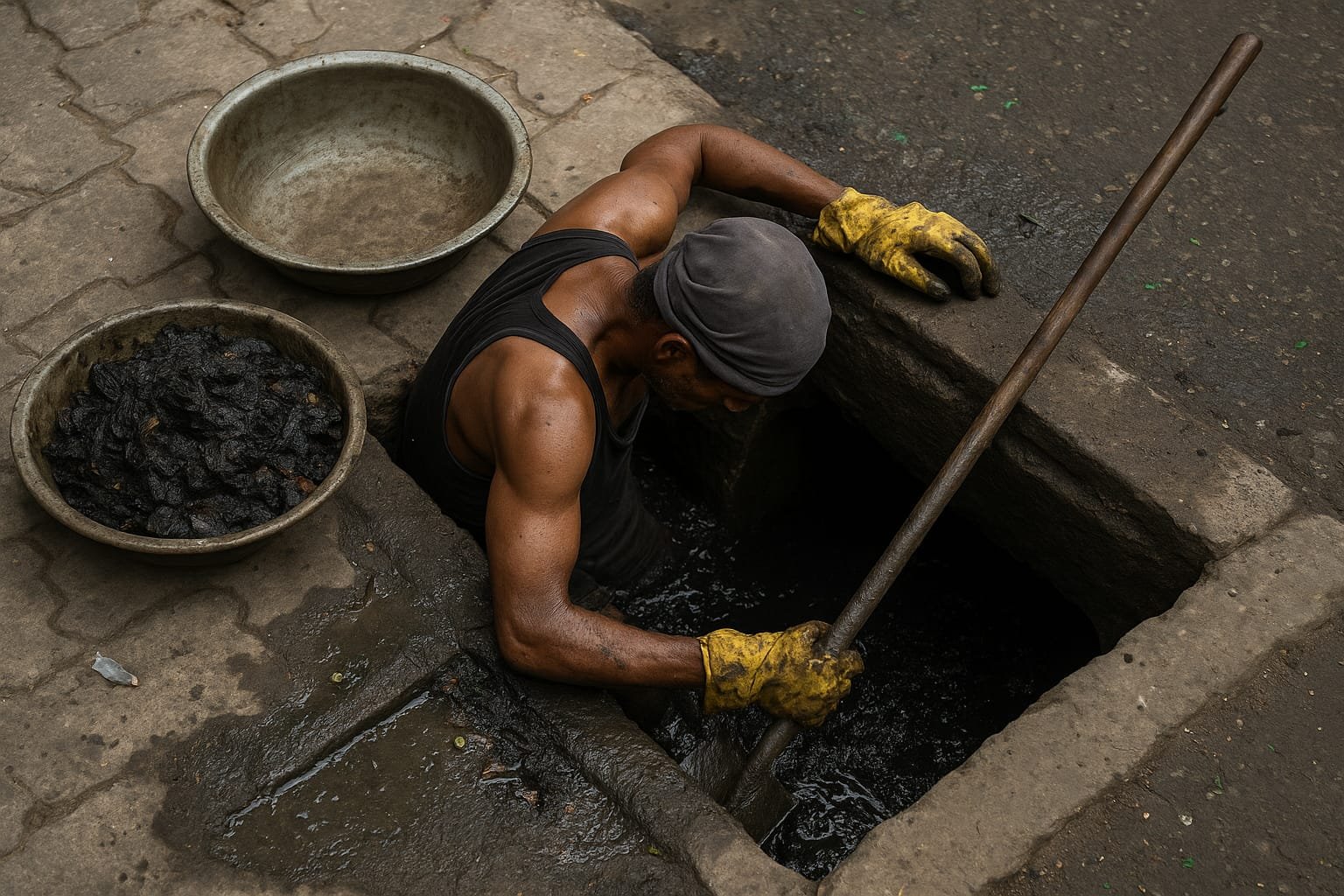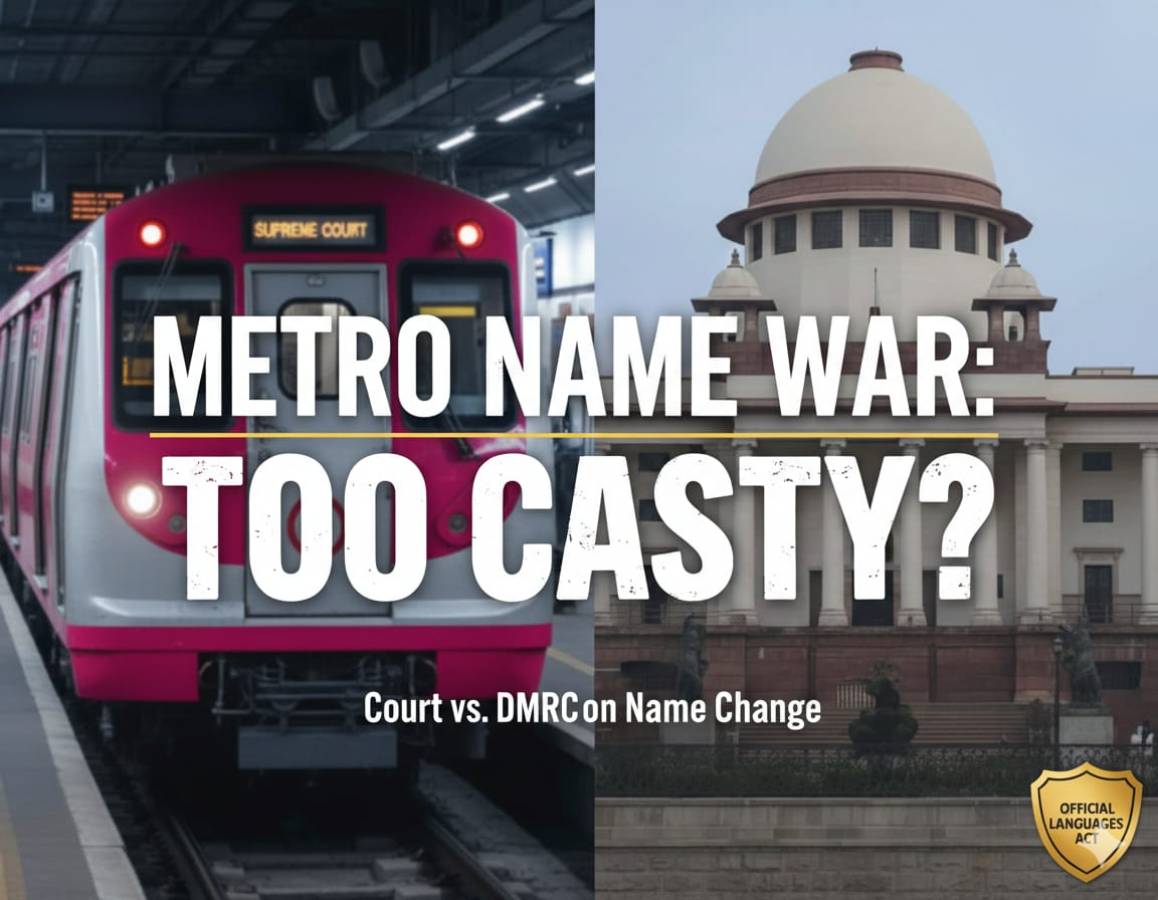
Every monsoon, Delhi prepares for rain with official press conferences and civic briefings. But beneath this seasonal choreography, another ritual plays out in silence. It involves no machines, no safety protocols, and no recognition. Just men, mostly Dalits and migrants, stepping into drains with rusted shovels, plastic buckets, and bare hands. This is not history. This is Delhi’s current civic strategy.
These are the men who clean the capital’s drains. Contracted in bulk, often without names or rights, they are deployed to clear filth that the city refuses to mechanise. Officials insist this is routine desilting. The law says this is illegal. But Delhi’s drains, and the men inside them, reveal the truth that paperwork cannot hide.
Drain Desilting in Delhi: A Human Rights Crisis
The Municipal Corporation of Delhi and the Public Works Department are responsible for maintaining over 13,000 drains. Each summer, they announce sweeping desilting drives. The cleaning work, however, is outsourced to private contractors who routinely ignore safety guidelines.
Workers are forced to enter clogged drains with no boots, gloves, masks, or protective gear. This is a clear violation of the Prohibition of Employment as Manual Scavengers and Their Rehabilitation Act, which strictly prohibits human entry into drains without mechanisation and safety equipment.
In practice, though, the law collapses under bureaucratic apathy and civic indifference.
The Legal Illusion and the Everyday Danger
Government officials argue that since the sludge does not contain human waste, this is not manual scavenging. But the lived reality of these workers defies such technical arguments. If a man must descend into waist-deep toxic muck, exposed to pathogens, industrial chemicals, and sharp debris, the debate over definitions becomes irrelevant.
This is hazardous work that often leads to long-term health complications. Yet the workers are offered no medical checkups, no life insurance, and no safety briefings. Their only reward is a day’s wage in exchange for a lifetime of risk.
Out of Sight, Out of Policy
Delhi’s urban elite enjoys clean roads and flowing drainage, but rarely questions who ensures it. There is no media spotlight on the manual labor behind monsoon preparedness. There are no viral videos, no awards, no compensation for those who die doing this job.
This silence is not accidental. It is engineered by a caste and class system that continues to assign the dirtiest work to the most vulnerable people. Even as India brands itself a global tech leader, it clings to feudal mechanisms of urban maintenance.
The False Promise of a Modern Capital
Delhi has no shortage of resources. Robotic sewer cleaners, vacuum suction trucks, and biohazard gear are available. What is lacking is the will to implement these technologies at scale. Civic bodies often cite budget constraints, yet crores are spent on beautification projects and ceremonial events.
The truth is uncomfortable but clear. India’s capital continues to rely on primitive methods to maintain its image. This is not due to a lack of options. It is a refusal to change.
Mechanise, Legalise, Humanise
If Delhi wants to call itself a modern city, it must stop using human beings as disposable tools. Drain cleaning must be fully mechanised, with strong legal enforcement and public accountability. Municipal workers must receive health cover, safety equipment, and proper training.
More importantly, the caste and class dimensions of this work must be acknowledged in policymaking. Real urban development cannot coexist with such inhumanity buried beneath its foundations.
The Real Dirt Is Not in the Drain
New Delhi may hold the title of India’s capital and boast the infrastructure of a megacity, but beneath the surface lies a grim contradiction. A city that hosts global summits and flaunts smart city ambitions still relies on bare hands to clean its underbelly. The real filth lies not in the drains, but in the system that allows human lives to be sacrificed for cosmetic order. Until that changes, Delhi’s development will remain deeply compromised, built on silence and systemic neglect.





















